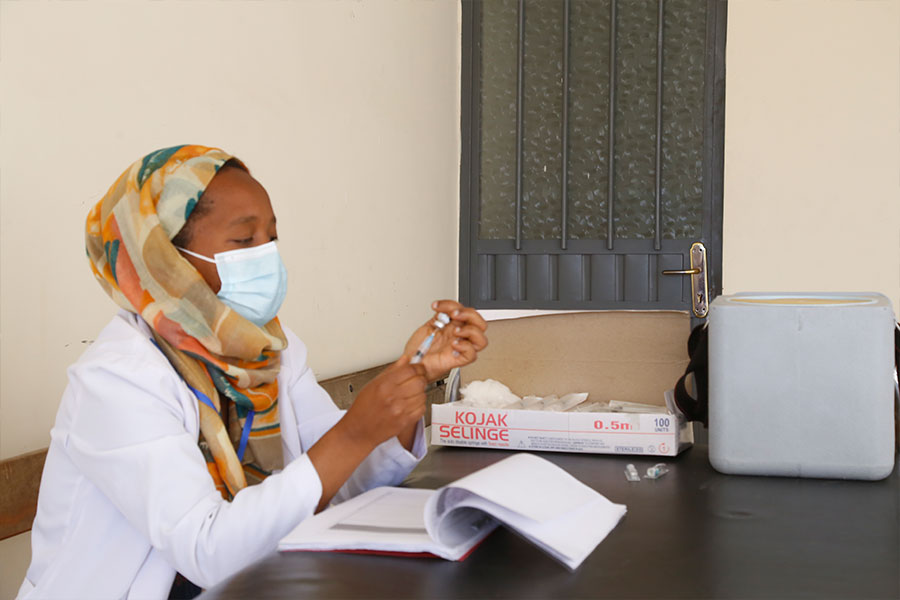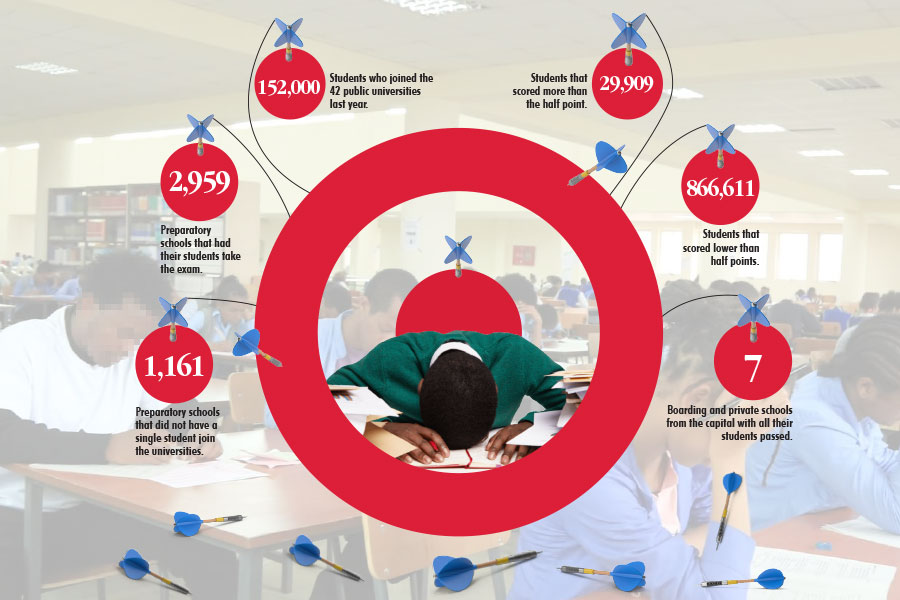
Radar | Sep 06,2020
Sep 11 , 2020
By Vivianne Infante
Vivianne Infante is Ethiopia country Director of the CDC Group, the UK’s development finance institution and impact investor with a mandate to support the sustainable, long-term growth of businesses in Africa and South Asia.
The onset of the COVID-19 pandemic has altered the global course of economic development. Even diversified economies such as Ethiopia’s have been hit hard. Containment measures, disruptions to international travel, and subdued demand for goods exported by Ethiopia have already had a significant impact on the country’s economy.
Around 1.8 million Ethiopian jobs are at risk, according to the World Bank, with livelihoods of many more millions of informal workers also expected to be affected. The crisis has also highlighted the resilience of Ethiopian businesses, with industrial parks quickly re-tooling their production chains to supply personal protective equipment (PPE). At the same time, Ethiopian Airlines doubled its cargo capacity to capture emerging opportunities and distribute PPE across the continent.
Sub-Saharan Africa is projected to contract by 3.2pc in 2020, the region’s first recession in a quarter century. Of its five largest economies, only Ethiopia is expected to grow this year, according to the IMF, though the institution’s forecast of about two percent marks a sharp drop from the annual expansion of around 10pc witnessed over the last decade.
In this context, the country faces additional financing needs estimated at 1.5 billion dollars as tax revenue collection drops, and additional expenditure is needed to counter the public health and economic impacts of the pandemic. The decline in exports and remittances has also affected foreign currency reserves. Together, these dynamics will constrain the government’s ability to fuel growth and support livelihoods.
The pandemic has brought into sharp focus the need to support and accelerate the government’s efforts to unleash the potential of the private sector, accelerate growth and pave a path to prosperity. This effort has already been kick-started through the opening of new sectors to foreign investors and privatising a number of state-owned enterprises. The resilience Ethiopia has demonstrated amid the pandemic is an encouraging sign that the reform agenda is paying dividends by driving long-term economic recovery and growth.
What role could development finance institutions (DFIs) play in this transition to private sector-led development?
DFIs - specialised development organisations that invest in private sector projects to promote job creation and sustainable economic growth - are particularly well-placed to accompany the government on this journey. These institutions take a long-term approach to investing in private companies, helping them grow and transform their operations to drive both their commercial returns and development impact. In turn, these investments support job creation and generate taxes that fund essential public services such as health, education and social programmes for Ethiopians.
Beyond this, investment from DFIs - such as the UK’s CDC Group [the author of this article is a country director of CDC Group], which has invested in Ethiopia since 1973 and is the largest impact investor in Africa - also helps catalyse innovation. For instance, the CDC’s indirect investment in the dairy producer Family Milk in 2016 - through SGI Frontier Capital, Ethiopia’s first private equity fund - helped the company launch a state-of-the-art factory producing long-life milk at a fraction of the cost of imported milk, creating opportunities in the value chain for Ethiopian small farmers and retailers.
By committing to investing in Ethiopia today - both in terms of providing capital and technical expertise – DFIs are signaling their confidence in the country’s long-term growth prospects. This is all the more crucial as COVID-19 has hampered progress. But DFIs cannot do this alone. Looking to the medium term, these commitments will be vital to mobilise additional investments from global commercial investors, needed to strengthen the private sector, support local entrepreneurs and create jobs. Unlocking the participation of these investors – drawn by the success stories of DFIs – will be central to turbocharging Ethiopia’s growth.
Ethiopia has been capturing global investor attention for some time because of its rapid economic expansion and ambitious reforms. The agility and resilience that Ethiopians have demonstrated over the last few months has only strengthened the country’s standing.
Investors taking a long-term view of Ethiopia’s potential today will be well embedded when the economy returns to rapid growth. Their capital will boost the economy and improve living standards for millions of people. Development finance institutions remain committed to playing their part in helping Ethiopia realise its potential by continuing to invest and anchoring additional international capital from commercial investors.
PUBLISHED ON
Sep 11,2020 [ VOL
21 , NO
1063]


Radar | Jun 11,2022

Radar | Aug 06,2022

Radar | Apr 02,2022

Fortune News | Nov 13,2021

Fortune News | Feb 04,2023

Photo Gallery | 151307 Views | May 06,2019

Photo Gallery | 141564 Views | Apr 26,2019

My Opinion | 134763 Views | Aug 14,2021

My Opinion | 131338 Views | Aug 21,2021

Dec 22 , 2024 . By TIZITA SHEWAFERAW
Charged with transforming colossal state-owned enterprises into modern and competitiv...

Aug 18 , 2024 . By AKSAH ITALO
Although predictable Yonas Zerihun's job in the ride-hailing service is not immune to...

Jul 28 , 2024 . By TIZITA SHEWAFERAW
Unhabitual, perhaps too many, Samuel Gebreyohannes, 38, used to occasionally enjoy a couple of beers at breakfast. However, he recently swit...

Jul 13 , 2024 . By AKSAH ITALO
Investors who rely on tractors, trucks, and field vehicles for commuting, transporting commodities, and f...

Sep 6 , 2025
The dawn of a new year is more than a simple turning of the calendar. It is a moment...

Aug 30 , 2025
For Germans, Otto von Bismarck is first remembered as the architect of a unified nati...

Aug 23 , 2025
Banks have a new obsession. After decades chasing deposits and, more recently, digita...

Aug 16 , 2025
A decade ago, a case in the United States (US) jolted Wall Street. An ambulance opera...

Sep 7 , 2025 . By NAHOM AYELE
Addis Abeba's sixth public land lease auctions after a five-year pause delivered mixe...

Sep 7 , 2025 . By BEZAWIT HULUAGER
Brook Taye (PhD), the chief executive of the Ethiopian Investment Holdings (EIH), is...

Sep 7 , 2025 . By BEZAWIT HULUAGER
For decades, Shemiz Tera in the Addis Ketema District of Atena tera has been a thrivi...

Sep 7 , 2025 . By NAHOM AYELE
A dream of affordable homeownership has dissolved into a courtroom showdown for hundr...